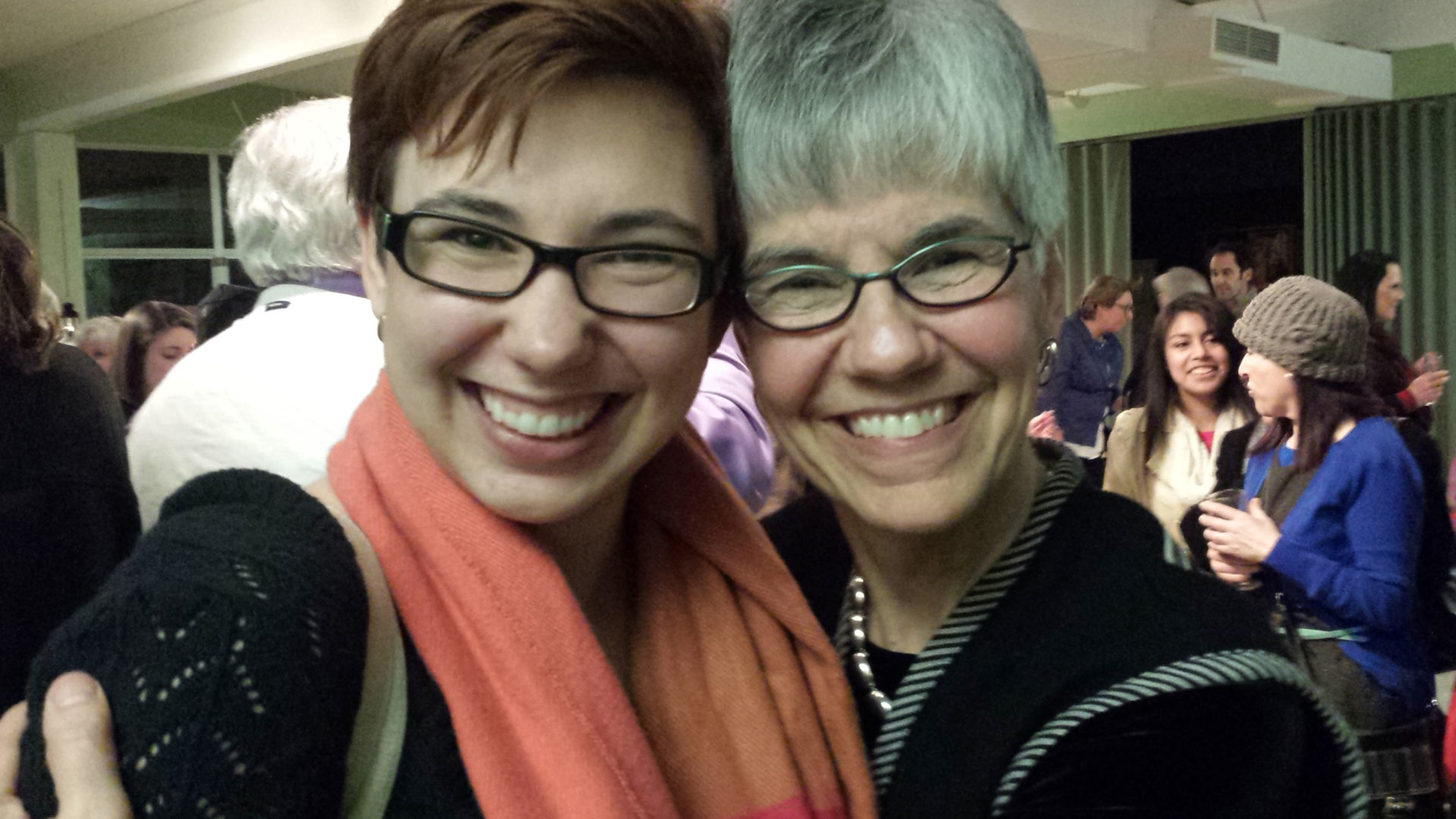When a group of young adults asked me to become their next leader, I quickly blurted out, “I can’t, I’m a woman.”
Everyone was surprised, most of all myself. I’m usually bold and outspoken; in what cave of my soul had this patriarchy been hiding? Members of the group discussed and discerned with me; books were recommended and read; pastors at our church met with me several times.
Six months later, I attended The Seattle School Preview as a prospective Master of Divinity student.
During that weekend, some faculty introduced themselves to the applicants. Three professors gave their names and shared a little about their work inside and outside the school and the courses they teach.
And then Dwight Friesen spoke. I recognized him, but didn’t know much about him. He’s all over the school promotional material, and understandably so: he’s pierced, tattooed—the all-around cool kid who also exudes a welcoming warmth. From the moment you see him, you want to get to know him.
That morning, Dwight introduced himself like the other faculty—but then continued speaking. He shared that just the day before, he had given up his ordination. For years he had been vocal about women’s rights in the church, and had asked his denomination’s leaders yet again to grant women ordination. They said it wouldn’t happen—not in his lifetime, anyway.
So, as an act of solidarity with the women denied their roles in leadership, Dwight did the Christian thing by stepping down from Christian leadership. He aligned himself with the marginalized. If the church wasn’t recognizing the absence of women’s voices, they would at least know the loss of Dwight’s voice. As he shared this with us, it all felt so fresh, so tender. In his voice, I could hear his tears building, and I clenched my jaw and looked upward to contain my own.
The internal struggle for me to even be sitting for an interview as an MDiv applicant that morning had been great. A woman leading in the church—what right did I have? I felt audacious, scandalous, dangerous. And here was a man laying down his ordination so that someday I might be granted the opportunity to be ordained.
He had no reason to share such information with a group of prospective students, and yet I’m so grateful that he did. In that moment, my internal turmoil was quieted, I felt desired, I felt empowered, and beyond that, I felt needed.
I didn’t yet have articulate statements of scriptural interpretation for women leaders in the church, I just had a feeling that this man’s decision had instilled in me. I had, at once, a sense of urgency and a sense of peace, both with the same source: the church needs me as I am, not in spite of my breasts and womb and gendered experience, but because of them.
I’m now finishing my third year in the MDiv program and ending my internship with a priest who also happens to be a strong woman. My work of understanding myself—both as a woman and a leader—is nowhere near complete; yet it was during that moment of recognition, of deep calling to deep, of my experience being recognized by another, that I was invited to embrace my call.
Learn more about our Master of Divinity program »
(Image: Kate and her mentor during her internship, Mother Melissa Skelton, Bishop of the Diocese of New Westminster in Vancouver, B.C.)

